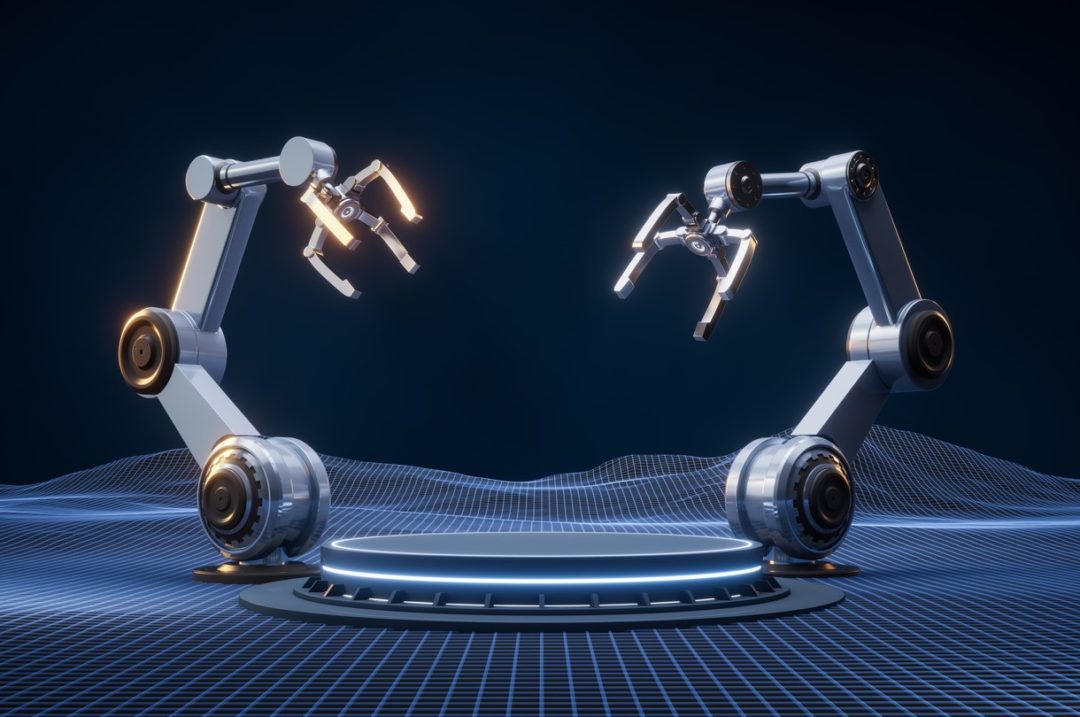
Think Tank
How Intelligent Automation Can Enable Sustainability in Manufacturing

Image: iStock.com/Jian Fan
Consumers are increasingly conscious of the environmental impact of their purchasing decisions. While cost and speed of delivery used to be the primary selling points of a product, there is a clear shift to placing more emphasis on products with lower environmental impacts. For example, fast fashion — a notoriously wasteful industry — is expected to see a 10-30% revenue decline over the next decade. This trend is affecting every industry, as items labeled “sustainably manufactured” are becoming more attractive to consumers. Many are willing to pay a premium for that distinction.
For many manufacturers, however, prioritizing sustainability is a completely foreign concept. Alternatively, those who understand the importance cannot fathom the financial implications of changing their entire operation. Despite the many challenges involved, it’s becoming clear that brands who adapt to this new reality will be the ones that secure consumers’ loyalty.
So what can manufacturers do to become more sustainable while maintaining profitability? The key to this lies in flexible, AI-empowered manufacturing. When implemented strategically, truly autonomous manufacturing has the potential to reduce waste and improve outputs — all while keeping long-term profitability at the core.
Traditional Manufacturing’s Carbon Footprint
To understand the power of intelligent manufacturing, it’s important to first take a look at the hurdles of traditional manufacturing when it comes to sustainability. The way that most manufacturing processes are currently set up makes them very energy-intensive and wasteful. For instance, energy and materials are often wasted on inefficient quality control and re-work, much of which isn’t performed until the part is nearly completed.
When it comes to energy savings, any savings in terms of size or efficiency in a single step in the manufacturing process is amplified by the scale of the operation. This means that even small, incremental process design improvements enabled by more intelligent systems yield significant energy savings in most industries.
Enabling Sustainability Through Intelligent Automation
When it comes to waste, intelligent automation has the potential to enable on-demand production, a system in which products are only manufactured when needed and in quantities required. These intelligent manufacturing systems provide real-time data, modeling, and automation feedback to make better changes to production efficiently — with little human intervention. For example, a smart line could adapt an existing line to change orders and reuse autonomous stations almost on-the-fly, greatly reducing overall waste.
When it comes to reducing carbon emissions, intelligent manufacturing can enable more efficient supply chain processes by bringing products closer to the consumer. Autonomous intelligent factories occupy less space, require less capital investment, and fewer people to operate. Instead of one giant facility, each small factory (or areas within an existing facility) can be optimized for its portion of the final product. Additionally, intelligent manufacturing enables greater crossover between seemingly disparate products, which means that one facility can produce items for many different needs without major retrofitting.
A Realistic Path Forward
While intelligent manufacturing cannot happen overnight, most of us wish it could. In reality, there are steps that must first be taken. Industry leaders should focus on the incremental steps of modularization in order to realize the longer-term goal of sustainable manufacturing. The first priority should be to gain a fuller understanding of current processes. There has been a notable shift in the industry toward modular manufacturing, which prioritizes AI and data analytics to gain an understanding of each process within a factory’s operations.
The next step is to leverage these insights more broadly, allowing manufacturers to tailor their approach to intelligent production and make incremental improvements across their factory floor. This gives manufacturers a low-risk entry into deploying more advanced technology.
However, it is critical to select tools that are flexible enough to scale with production, so they become a long-term investment toward reaching sustainability goals.The Bottom Line Sustainability should be top of mind for every manufacturer.
While there is certainly a business advantage in responding to consumer demand for products that are manufactured in a more responsible manner, this approach clearly benefits operations in a variety of other ways. Although overnight transformation may not be realistic, a modular approach can give industry leaders a realistic way to leverage intelligent automation to the benefit of their business, their customers and the planet.
Lukas Pankau is chief executive officer of Industrial Next.






